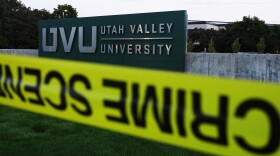Nestled between two country clubs, a mall and municipal airport in the heart of Naples is the Gordon River Greenway.
Here the hubbub of a rapidly growing Collier County vanishes as visitors to this preserve become entrenched in old Collier – a place where there are wading birds, manatees, bald eagles, bobcats, otters and gopher tortoises and no gates into yet another planned community.
The preserve, one of 22 in Collier County, is paid and supported by tax funds from the Conservation Collier Land Acquisition Program.

The program has purchased 4,700 acres of pristine land and the list of environmentally sensitive land it wishes to purchase in the future is long.
“And you know, we're painfully aware of (that) if you don't do it, now, if you don't do it soon, it won't be there to protect,” said Brad Cornell, the policy director of Audubon of Western Everglades. “And that's it. And that's another value of this program is that it's a local program.”
If the funding formula was the same as it has always been, the program was slated to get some $34 million in taxes this coming fiscal year. But that could change if Collier County Board Chairman Rick LoCastro.
The owner of a home appraised at $400,000 would pay $100 in taxes to maintain the current funding if the millage rate for this specific program is left intact.
More about Conservation Collier
“With Conservation Collier, if you leave a millage neutral — they get more money than they've ever gotten in the history of Conservation Collier,” LoCastro said at a commission meeting last week, directing his attention to the Audubon's Cornell. “I am not going to vote for that. Okay, Brad, I love you. I'm not going to vote for that. Okay. I'd like to keep that program solvent and maybe healthy. Maybe a little less healthy than it's been. I don't want to go to zero, but I'm not going to vote for millage neutral for Conservation Collier.”
So LoCastro directed staff to come back with a proposal to cut the funding in time for Thursday’s final budget hearing when commissioners must set the millage rate.
“Bring me something that looks like $20 million plus or minus probably $20 or less. That's just me,” LoCastro said.
LoCastro said he doubts voters knew what they were approving when matter was proposed to them in three different referendums since 2002.
In 2006, 86 % of voters said they said they wanted to keep the tax. The vote for the tax in 2002 and then again in 2020, after the original measure had run its course, was also overwhelmingly in favor of the tax. The local Audubon groups led the efforts to let voters decide if they wanted to fund the land acquisition program.
“The commissioners question whether voters knew what they were voting for in Conservation Collier,” Cornell said in an interview after last weeks meeting. “I don't think there's any question that people knew what they were voting for,” Cornell said. And they did it three times. It wasn't a fluke. This was a clear priority of the voters in a very conservative part of Florida. They said “Tax me. I want you to buy conservation land and manage it forever. We need these preserves.’”
This final budget hearing is set for 5:05 p.m. Thursday.
WGCU is your trusted source for news and information in Southwest Florida. We are a nonprofit public service, and your support is more critical than ever. Keep public media strong and donate now. Thank you.







